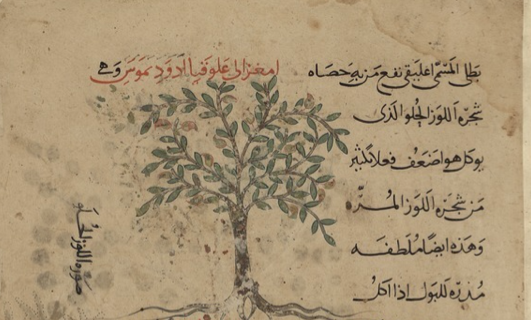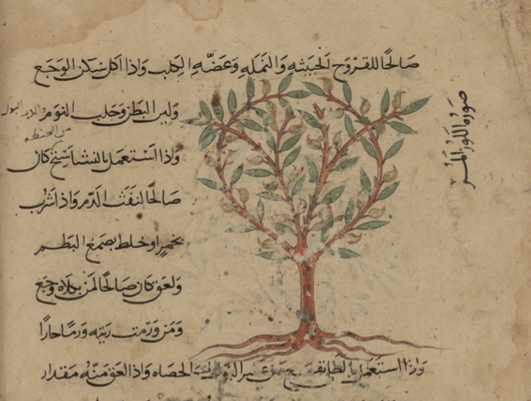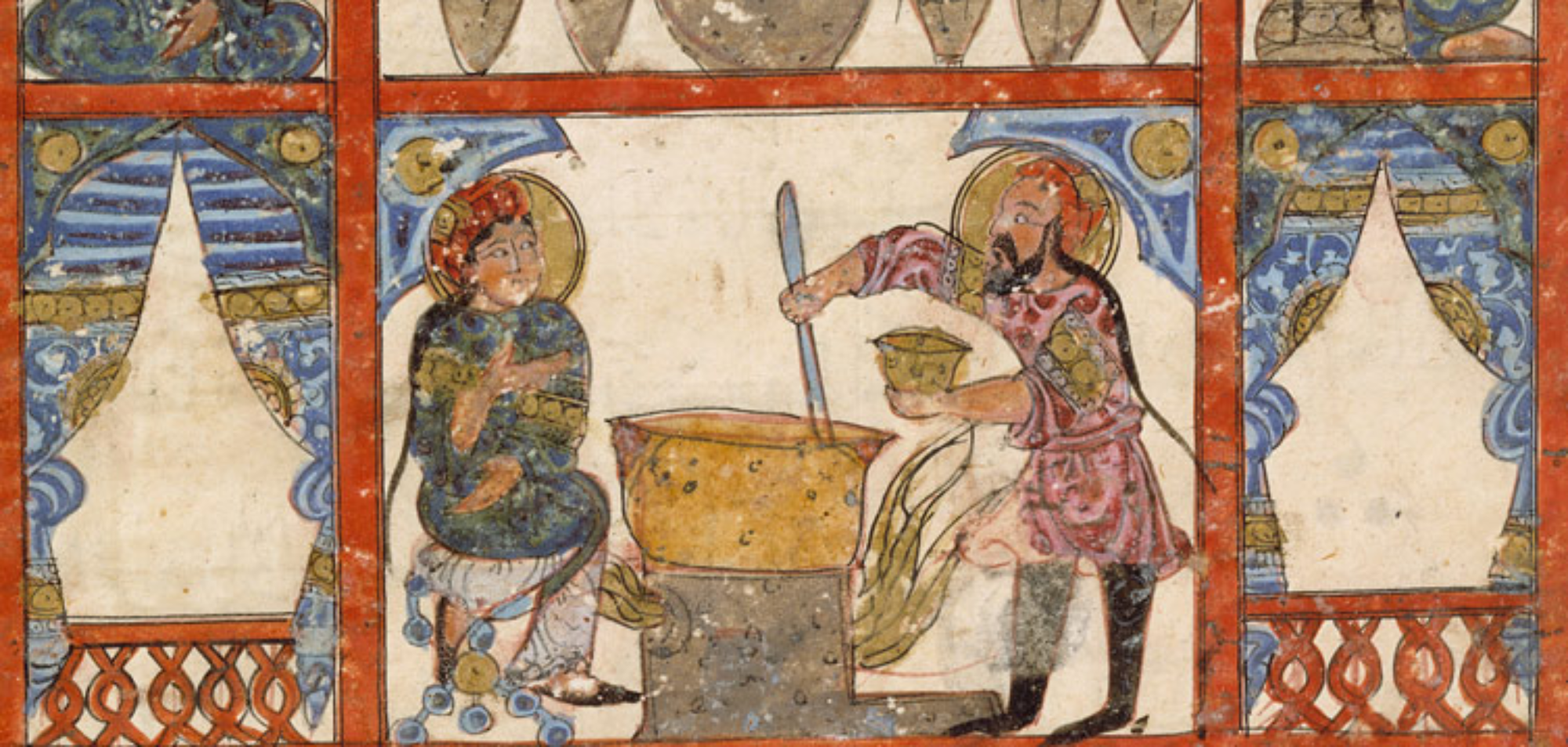One of the most famous staple dishes in medieval Europe was the blancmange(r), which was a sweet rice pudding with chicken. One of the principal ingredients of this dish, whose origins can be traced to the Arab milk pudding muhallabiyya, was almond milk, which was highly prized in Christian Europe since it served a very useful purpose as a substitute for milk during Lent.
Almond milk is obtained by steeping ground almonds in water and then squeezing out the liquid and is thus not really ‘milk’ at all. In medieval Arab cookery books it is often referred to as duhn al-lawz (دهن اللوز, ‘almond oil’), though occasionally the terms mā’ al-lawz (ماء اللوز, ‘almond water’) and halīb al-lawz (حليب اللوز, ‘almond milk’) are also found. This should not be confused with what is today known as ‘almond oil’, which is the extract remaining after pressing dried almond kernels. In a 13th-century North African culinary treatise, the production process for almond milk (or oil in the parlance of the day) is described as follows: “Crush good-quality peeled sweet almonds in a mortar, including their thin [outer] skin, until they have the consistency of brains. Then take fresh water and heat it up in a clean glazed vessel and add one ūqiya (ounce) of hot water for each raṭl (pound) of almonds. Rub them vigorously with your hands until you see their oil come out between your fingers. Then put the almond mixture in a thick cloth and gingerly squeeze it until all of the oil is released. Take the sediment and crush it again with a little hot water. Leave until the water has been absorbed and then vigorously squeeze to express all the oil it holds. One raṭl of almonds yields a quarter or a third of the oil.” Even so, in a few recipes, a distinction appears to be made between almond milk and oil. The answer lies in the description of the process by the 11th-century pharmacologist Ibn Jazla: “[almond oil] is made by grinding [almonds] and extracting their oil with hot water, or by pounding almonds smooth and turning them into a dough before sprinkling on hot water and kneading them until they release their oil.” The second method would result in what we today would recognize as almond oil used in cooking, though it cannot be excluded either that there was a third method without the use of any water before squeezing out the oil.
The sources reveal that the use of almond oil/milk in Arab cuisine decreased over time, even though the popularity of almonds, themselves, never waned. In the earliest cookery manual, which was probably written in Baghdad around the 10th century CE, it is used in a large variety of dishes, both savoury and sweet (including in one of the oldest recipes for marzipan), and often as a binding or thickening agent. In another Baghdadi book, from the early 13th century, almond oil is required in only a few sweet recipes, such as a jūdhāb. Similarly, a Syrian culinary treatise from the same period only uses it in a chicken stew, a boiled aspragus dish, and ka’k (كعك), as well as in a perfume. On the other side of the Mediterranean, in 13th-century Muslim Spain, it is found in a handful of recipes for frying sweets, such as ka’k, bread pudding, or qatā’if (a kind of crepe). Ibn Jazla included it in sweet dishes like jūdhābs or khabīs. In the Egyptian cookery books from the 14th and 15th centuries, almond milk is called for in a dozen or so recipes, often chicken stews, as well as sweet puddings.
Sweet and bitter almond oil played an important role in both Greek and Islamic medicine. According to Ibn Jazla, sweet almond oil was useful in the treatment of a variety of conditions, including headaches, kidney aches, bladder stones, dysuria, womb aches, chronic coughs, colic, and even rabid dog bites. However, it is harmful for those with weak bowels. Bitter almond oil, on the other hand, is beneficial for the spleen, headaches, colic, earworms, and helps increase menstrual flow. The great Ibn Sīnā (Avicenna), for his part, recommended almond oil against colic, while rice cooked with milk and almond oil increases its nutritional value. He also prescribed almond oil in the treatment of sprains, tinnitus, and even to facilitate beard growth.


